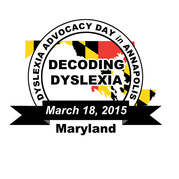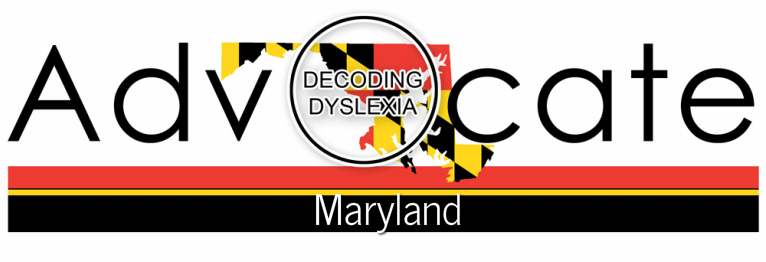
On March 18th, 2015, 80+ Decoding Dyslexia families and community partners met in Annapolis to educate state legislators about dyslexia.
Students who struggle to read, write and spell in public schools spoke with their legislators to explain what would help them do better in school and how to get those results. Families, teachers and dyslexia specialists and educators from across Maryland provided information to legislators about dyslexia and the educational, social and economic impacts of not learning to read in public school.
Research and evidence provide best practices to teach students with dyslexia and other language learning differences how to read, write and spell. There are more than 15 private schools in Maryland who offer a solution. Maryland public schools must identify struggling readers and those with risk factors for dyslexia in K-1 and provide evidence-based structured literacy interventions. HB 278 and SB 15 will take Maryland closer to that goal.
We must ensure that Maryland teachers have the tools and training that they requested in 1999 (Reading is Rocket Science, American Federation of Teachers: What Expert Teachers of Reading Should Know and Be Able to Do, June 1999). Teachers cannot teach the foundations of language and, screen for reading struggles and/or provide whole class interventions without teacher prep programs in Maryland colleges and without professional development.
Maryland teachers want all kids to learn to read, but they need the tools to make this happen. Appendix A of the Common Core State Standards provides a compendium of the foundational knowledge needed to teach reading -- very few teacher prep programs provide teachers with this knowledge or practice. How can we hold teachers accountable for their students' reading scores if they are not given the tools to teach reading to all students? The PARCC tests will show the number of kids who cannot read and it will be a surprisingly high number to many.
Decoding Dyslexia Maryland will continue to work to close the action GAP and bring parents, students, teachers and related professionals together to advocate for educational change. The Time is NOW.
Students who struggle to read, write and spell in public schools spoke with their legislators to explain what would help them do better in school and how to get those results. Families, teachers and dyslexia specialists and educators from across Maryland provided information to legislators about dyslexia and the educational, social and economic impacts of not learning to read in public school.
Research and evidence provide best practices to teach students with dyslexia and other language learning differences how to read, write and spell. There are more than 15 private schools in Maryland who offer a solution. Maryland public schools must identify struggling readers and those with risk factors for dyslexia in K-1 and provide evidence-based structured literacy interventions. HB 278 and SB 15 will take Maryland closer to that goal.
We must ensure that Maryland teachers have the tools and training that they requested in 1999 (Reading is Rocket Science, American Federation of Teachers: What Expert Teachers of Reading Should Know and Be Able to Do, June 1999). Teachers cannot teach the foundations of language and, screen for reading struggles and/or provide whole class interventions without teacher prep programs in Maryland colleges and without professional development.
Maryland teachers want all kids to learn to read, but they need the tools to make this happen. Appendix A of the Common Core State Standards provides a compendium of the foundational knowledge needed to teach reading -- very few teacher prep programs provide teachers with this knowledge or practice. How can we hold teachers accountable for their students' reading scores if they are not given the tools to teach reading to all students? The PARCC tests will show the number of kids who cannot read and it will be a surprisingly high number to many.
Decoding Dyslexia Maryland will continue to work to close the action GAP and bring parents, students, teachers and related professionals together to advocate for educational change. The Time is NOW.

 RSS Feed
RSS Feed